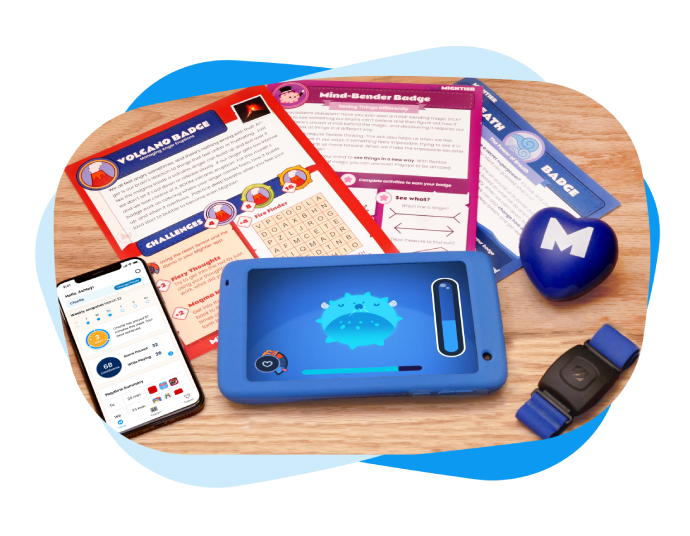
Let’s stop making families work for care. Let’s make care work for families.
When it comes to the pediatric mental health care system, and the options within it, we’re going to find gaps. These gaps are not just about the number of providers available. These gaps have to do with how mental health care is delivered, who it is built for, and how it engages kids and families. Now layer a neurodivergent child’s emotional and behavioral needs, as well as their family’s, into the mix. Throw in the complexities that can come with navigating Medicaid and the healthcare system and there are many challenges. The system is not necessarily always set up to make mental health care accessible for them.
Here are 5 ways Medicaid plans can improve access to mental health care for neurodivergent children. Children and adolescents who may have a variety of mental health conditions including ADHD, Autism or anxiety.
1.Offer flexible and convenient care delivery options
How do you get to in-person appointments when you work, your kids are in school, and you have multiple medical or mental health care appointments to balance? Sometimes the answer is that you don’t. Having access to care does not mean you can access that care. Thinking flexibly about pediatric and adolescent care options, as well as how they are delivered, can increase a family’s access.
Digital pediatric mental health care solutions like Mightier allow families to access and engage with care right from their home and on their own schedule. Options like this make care work for families, instead of families having to work for care.
2. Offer care that is built for kids
There’s a reason why the pediatric mental healthcare gap exists. Not only are there fewer pediatric mental health care providers available, as well as fewer digital and telehealth options for pediatric care, but many forms of mental healthcare tools are just not constructed with kids and teens in mind.
Kids learn through play, they engage through play, they process information and form relationships through play. The importance of play means two things. First and foremost, effectiveness. Kids need play integrated into their care in order to establish trust, align with treatment and goals, and to grow and progress in a meaningful way. Second, engagement! For all kids, but especially for neurodivergent children whose attention, focus, and motivation are often tied to things that feel positive and rewarding, play (and having fun) matters. It keeps them coming back and engaged.
Evidence-based biofeedback video games, like Mightier, are built for kids. They are effective for neurodivergent children because they are based on an engaging, experiential, and playful learning models. Children enjoy playing, they are empowered and feel positive about themselves and their wellbeing as they play, and they develop true emotional awareness and regulation skills through practice because they are motivated to come back session after session.
3. Increase flexibility on what care IS
Even when we speak with caregivers who are trying to understand their children’s emotional and behavioral health needs, their immediate assumption is that care equals therapy. This is how the system is traditionally set up and how care is typically offered. The limitation here, however, is that pediatric therapy is not always available, not always accessible, not always convenient, and not always fun. This is not a criticism of therapy. This is a statement about the limitations families face when trying to help their children and access care. If we, as a system, can increase our flexibility on what mental health care is, and help families identify more “alternative” and flexible options as well, we can reach and help more kids.
This flexibility starts with states and Medicaid plans recognizing innovative solutions, like digital-first solutions, as options for care. Care that can be as effective as traditional modalities for those enrolled in Medicaid programs.
4. Increase flexible spending options
Neurodiversity means that kids are different from one another. That means that their mental and physical healthcare needs, their emotional needs, their behavioral and sensory needs are different from one another. Not all differences can be planned and accounted for. What this means is that, when thinking about the medical and behavioral healthcare services that will be offered and provide insurance coverage for a family, there will be services, tools, and resources that inevitably fall outside of that coverage. Caregivers know their children best, and they are strong advocates for their children’s needs, but sometimes parental knowledge, advocacy and love are no match for hard and fast rules around insurance coverage. Giving families the funds and freedom to engage more flexibly with tools, services and resources that could help their child has the significant potential to increase access to care (whatever the definition).
Waiver programs, although still requiring that the program “approves” the service, are a great example of increased flexibility in care options. At Mightier, we’ve partnered with waiver programs in a variety of states to increase families’ access to clinically validated, evidence-based digitally accessible pediatric behavioral health tools like Mightier.
5. Provide support to navigate the system
What sorts of services does a child need, what types of family support services are available, and how easy is it for caregivers to find and access those services? Sometimes the options are there, but hidden or difficult to obtain. Some families aren’t sure where to look. For some, the burden of navigating a system they are unfamiliar with is overwhelming. When things are overwhelming, we often can’t even begin the task. We hear these examples time and time again from caregivers desperately searching to support their children’s emotional and behavioral needs. We hear it so often, in fact, that we consider it an actual stage of families’ “Care Journey.”
Medicaid care coordination and case management services help families navigate the healthcare system, access necessary services, and coordinate care across multiple providers. These services are valuable to anyone who is not intimately familiar with the healthcare system, but particularly valuable for families of neurodivergent children with complex medical and developmental needs.
If you are a caregiver of a neurodivergent child, it’s important to note that Medicaid benefits and eligibility criteria can vary state by state. Reach out to local advocacy organizations or support groups for families of children with neurodivergent needs to learn what other families have found helpful in your area.
To learn more about making Mightier available for your Medicaid members, let’s talk: https://www.mightier.com/health-plans/get-in-touch/
















